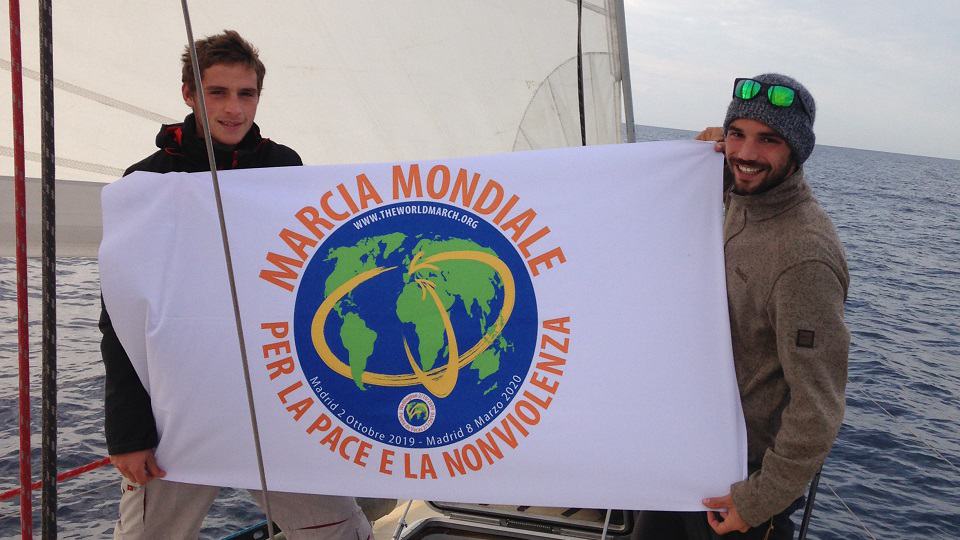October 28 - We decided to start the journey of Mediterranean Sea of Peace from Genoa to remind people that those ports that want to be closed to refugees and emigrants are open, always open, to load arms. Official and illegal.
In the city of LiguriaLast May, dockers from Filt-Cgil refused to load a ship, the Bahri Yanbu, which was suspected of carrying weapons on board for Yemen, where, from 2015, a civil war is being waged.
A war forgotten by all who, in addition to the thousands of dead, is causing the greatest humanitarian crisis since World War II.
Due to the war, poverty in Yemen has gone from 47% of the population in 2014 to 75% (expected) at the end of 2019. They are literally hungry.
It was just a drop in the huge arms trade in the world
Bahri Yanbu's burden was only one drop in the huge arms trade in the world, which in the four-year period 2014-2018 increased by 7,8% compared to the previous four-year period and by 23% compared to the 2004-2008 period.
The percentages say little, so let's say it in absolute values:
In 2017, global military spending was 1.739 million dollars, or 2,2% of the world's Gross Domestic Product (source: Sipri, Stockholm International Institute for Peace Research).
At the top of the ranking are the five main exporters: the United States, Russia, France, Germany and China.
Together, these five countries represent about 75% of the total volume of arms exports in the last five years. The flow of weapons has increased in the Middle East between 2009-13 and 2014-2018.
You have to be blind to not see the correlation between migration in the Mediterranean and wars
We must be blind to not see the correlation between migration in the Mediterranean and wars, between the flight of hunger and the sale of weapons.
However, we are blind. In fact, let's say it better: we choose to be blind.
Just as we have given in to indifference to the death of migrants at sea, we have also resigned ourselves to consider the production and sale of
weapons as a "physiological" aspect of the economy.
Weapons factories provide work, arms transport provides work, and even war, even war, now privatized, is a job.
In Western countries that have been lucky enough to live in peace for more than seventy years, we have eliminated the very idea of war, as if
It was something that does not concern us.
Syria? It is very far. Yemen? It is very far. Everything that does not happen in "our garden" does not touch us.
We could not avoid the question: what can I do?
We closed our eyes and simply shook our heads at the news because if we chose to see, empathize with people who feel war in their own skin, we could not avoid the question: what can I do?
On this first day on a ship with the wind getting stronger and making it difficult to do something other than being in the cockpit and talking (between an adjustment and the next of the sails, of course) we discuss precisely this:
Resignation in the face of war, how you feel helpless against a gear of billions that moves the death machine.
We can't even imagine 1700 one billion dollars!
In the discussion, however, we all agree on one thing: the importance of asking ourselves: what can I do?
The solutions may differ from person to person, but the question is the same for everyone.
The solutions may differ from person to person, but the question is the same for everyone because it is the one that marks the beginning of consciousness, the transition from passivity to commitment to improve the world around us.
Try to ask yourself: what can I do?
Meanwhile, at 12 in the morning, a decisive mistral. We are all candles and navigation begins.
In tight, demanding that those who have to be under cover write. We will have to wait for the first stop. See you later.


2 comments on “Logbook, October 28”